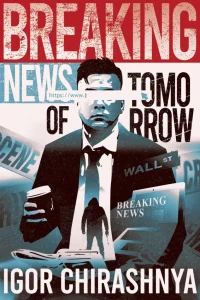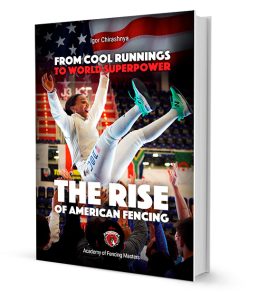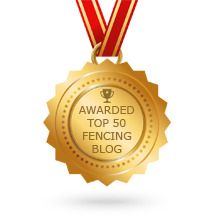Recently we received a lot of calls from adults inquiring about starting fencing. Is that even possible, they asked, isn't this a skill that you must learn in your childhood to be able to be even remotely good? Can you compete as an adult? The answer is simple - it's...
Academy of Fencing Masters Blog
Art of Fencing, Art of Life
Month: September 2022

AFM Super Regional at Santa Clara Convention Center in November
What is a “mega tournament”? In this case, it’s a massive regional competition that combines three circuits into one. It’s a Super Youth Circuit (SYC), and Regional Junior and Cadet Circuit (RJCC), and it’s a Regional Open Circuit (ROC) all in one weekend and under...

Ownership and Responsibility as Fencers
Silhouetted electricity pylon grid Who owns your performance in fencing? How much responsibility does your coach/club/family have for your success? What responsibility does the fencer have to their club, to their fellow fencers, to their support network, and to...

September 10 is World Fencing Day! How to Celebrate
Fencing is not just a sport that we love, it’s a sport that we live. World Fencing Day is a fantastic moment to celebrate fencing and to join the wider fencing community. This year, it falls on September 10, 2022, and we’re incredibly excited to have a reason to share...

Sometimes the Best Way to Support Your Fencer is to Step Back
As parents, we always want to be there for our kids. There’s no doubt that we love them, and to express that love we’re drawn to be right there with them, giving them everything we possibly can to support them as much of the time as possible. This tends to be...



